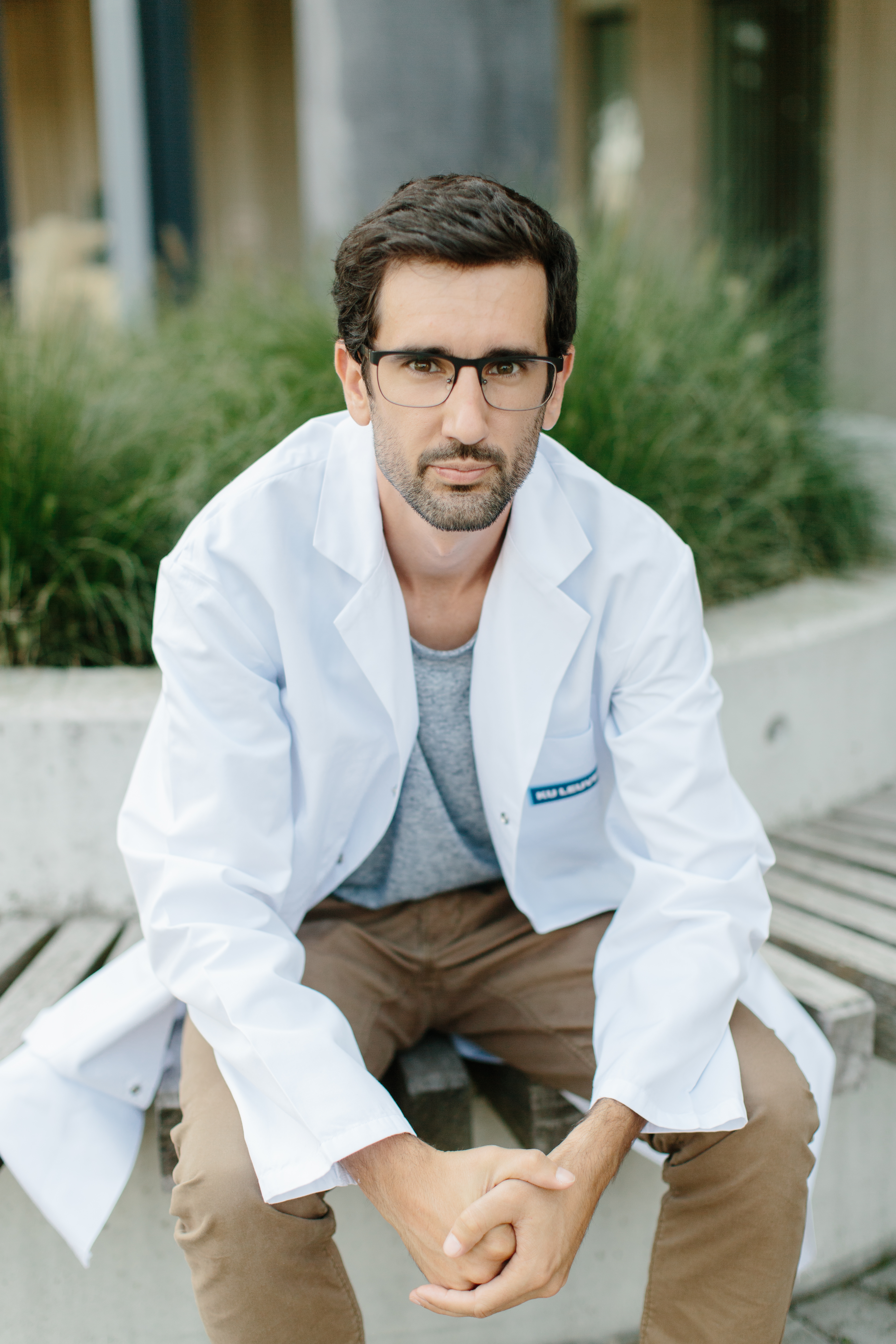Naturally occurring protein to block inflammatory response improved stroke recovery in mice
[ad_1]
Research Highlights
- People who have had a stroke were more likely than those without stroke to have evidence of an inflammatory immune response known as NETs (for neutrophil extracellular traps) that increased the risk of brain damage.
- A naturally occurring protein that blocks this inflammatory immune response, known as neonatal NET-inhibitory factor, or nNIF, was associated with better stroke recovery in a study conducted in mice.
- These findings, if confirmed by additional studies, could help improve stroke recovery.
Embargoed until 8:30 a.m. CT/9:30 a.m. ET Wednesday, Sept. 22, 2021
(NewMediaWire) – September 22, 2021 – DALLAS – A naturally occurring protein that blocks an inflammatory immune response was associated with better stroke recovery in a study conducted in mice, according to preliminary research to be presented at the American Heart Association’s Vascular Discovery: From Genes to Medicine Scientific Sessions 2021. The virtual meeting is Sept. 22-24, 2021, and is a premier global exchange of the latest advances in new and emerging scientific research in arteriosclerosis, thrombosis, vascular biology, peripheral vascular disease, vascular surgery and functional genomics.
 “By studying people who had an ischemic stroke and mice subjected to ischemic stroke, we discovered that during stroke, the immune system goes rogue in the brain,” said lead study author Frederik R. Denorme, Ph.D., a postdoctoral researcher at the University of Utah in Salt Lake City. “Previous research showed this most common type of stroke, caused by a blocked blood vessel in the brain, is associated with inflammation that can further damage brain tissue. In the past, however, treatments aimed at reducing this inflammation were unsuccessful.”
“By studying people who had an ischemic stroke and mice subjected to ischemic stroke, we discovered that during stroke, the immune system goes rogue in the brain,” said lead study author Frederik R. Denorme, Ph.D., a postdoctoral researcher at the University of Utah in Salt Lake City. “Previous research showed this most common type of stroke, caused by a blocked blood vessel in the brain, is associated with inflammation that can further damage brain tissue. In the past, however, treatments aimed at reducing this inflammation were unsuccessful.”
In this study, Denorme and his team looked at a particular immune cell, called a neutrophil, in humans and in mice. The usual role of the neutrophil is to prevent infection caused by viruses and other germs, in part by forming a web-like structure, or NET, for neutrophil extracellular trap, to capture germs. The researchers found that during a stroke, however, NETs can occur in the absence of infection, and instead of being protective can cause blood clots and brain damage.
Compared to a control group of healthy people without stroke, people with stroke were more likely to have NETs, as evidenced by the presence of certain proteins in the blood. These biomarkers were the highest among people with stroke who died or survived with disability. Study participants included 27 people with stroke and 27 healthy blood donors at the University of Utah. The adults were an average of 60 years of age, the majority were white and 40% were female.
To study the effects on stroke, the investigators blocked the formation of NETs in mice. To block NET formation, they administered a naturally occurring protein called nNIF, for neonatal NET-inhibitory factor, found in human umbilical cord blood.
The mice that were pretreated with nNIF had reduced brain injury, improved neurological and motor function and enhanced survival after stroke. Additionally, nNIF still improved stroke outcomes when administered after stroke onset and blocked NET formation after stroke without affecting other critical neutrophil functions.
“The degree of protection provided by the nNIF protein exceeded our expectations and makes us really excited about a future where NET inhibition may significantly improve stroke outcomes,” Denorme said. “It is important to note, however, that more research is still needed and currently ongoing to see how we can translate these findings from the lab to the stroke clinic to help improve outcomes for people after a stroke.”
A study limitation is the small number of human stroke patients. Future studies including more people are needed to verify the study’s findings and to pinpoint the optimal timing of the nNIF treatment, after additional studies in animal models establish its effectiveness.
“It has become increasingly clear that immune mechanisms play a role in brain injury and long-term outcomes after stroke. Thus far, strategies to mitigate these immune pathways have worked in animals, yet we have not been able to translate these changes into human successes, perhaps because the immune pathways have both beneficial and detrimental effects,” said Mitchell S.V. Elkind, M.D., M.S., FAHA, FAAN, immediate past president of the American Heart Association and a professor of neurology and epidemiology at Vagelos College of Physicians and Surgeons and attending neurologist at New York-Presbyterian/Columbia University Irving Medical Center. “It will be exciting to see whether further studies confirm the findings for inhibition of NET formation and provide a rationale for clinical trials testing this novel approach.”
Co-authors are Irina Portier, Ph.D.; Mark J. Cody, B.A.; Claudia V. De Araujo, Ph.D.; John L. Rustad, B.A.; Chieko Hoki, B.Sc.; Matthew D. Alexander, M.D.; Ramesh Grandhi, M.D.; Matthew D. Neal, M.D.; Jennifer J. Majersik, M.D., FAHA; Christian C. Yost, M.D.; Matthew A. Rondina, M.D., M.S., FAHA; and Robert A. Campbell, Ph.D. Author disclosures are in the abstract.
The study was funded by the National Institutes of Health and the American Heart Association.
Additional Resources:
Statements and conclusions of study authors that are presented at American Heart Association scientific meetings are solely those of the study authors and do not necessarily reflect association policy or position. The association makes no representation or warranty as to their accuracy or reliability. The association receives funding primarily from individuals; foundations and corporations (including pharmaceutical, device manufacturers and other companies) also make donations and fund specific association programs and events. The association has strict policies to prevent these relationships from influencing the science content. Revenues from pharmaceutical and biotech companies, device manufacturers and health insurance providers and the Association’s overall financial information are available here.
About the American Heart Association
The American Heart Association is a relentless force for a world of longer, healthier lives. We are dedicated to ensuring equitable health in all communities. Through collaboration with numerous organizations, and powered by millions of volunteers, we fund innovative research, advocate for the public’s health and share lifesaving resources. The Dallas-based organization has been a leading source of health information for nearly a century. Connect with us on heart.org, Facebook, Twitter or by calling 1-800-AHA-USA1.
The American Heart Association’s Vascular Discovery: From Genes to Medicine Scientific Sessions 2021 is the world’s premier meeting dedicated to the latest advances in new and emerging scientific research in the areas of arteriosclerosis, thrombosis, vascular biology, peripheral vascular disease, genomics, precision medicine and vascular surgery. The virtual meeting is Wednesday-Friday, Sept. 22-24, 2021. The primary goal of this virtual event is to provide a forum for the exchange of information about new and emerging scientific research in lipids and lipoproteins, arteriosclerosis, thrombosis, vascular biology, genomics and peripheral vascular disease. The Vascular Discovery 2021 Scientific Sessions program is planned by the American Heart Association’s Council on Arteriosclerosis, Thrombosis and Vascular Biology and the Peripheral Vascular Disease Council, in cooperation with the Council on Genomic and Precision Medicine, and the Society for Vascular Surgery. The meeting is of special interest to scientists and clinicians in cardiovascular medicine, cardiovascular research, thrombosis research, clinical cardiology, molecular/cellular biology, vascular biology, vascular medicine, vascular surgery, endocrinology, genetics, functional genomics, hematology, immunology and physiology. Follow the conference on Twitter at #VascularDiscovery21.
###
For Media Inquiries and AHA Expert Perspective:
AHA Communications & Media Relations in Dallas: 214-706-1173; ahacommunications@heart.org
Cathy Lewis: cathy.lewis@heart.org, 214-706-1324
For Public Inquiries: 1-800-AHA-USA1 (242-8721)
heart.org and stroke.org
[ad_2]




